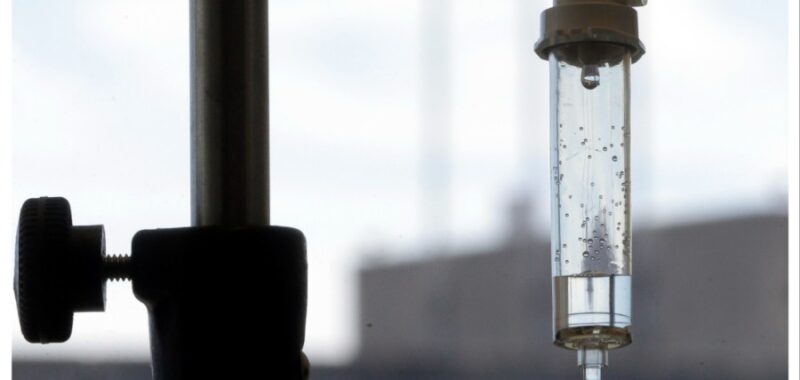
An IV factory on the Florida coast is up and running again after temporarily shutting down as Hurricane Milton made landfall.
B. Braun Medical’s manufacturing and distribution center in Daytona Beach was not seriously impacted by Hurricane Milton, according to a spokesperson Alli Longenhagen.
Before the storm hit, the company moved over 60 truckloads with over 1.5 million bags of IV solution to northern areas of Florida with help from the federal Administration for Strategic Preparedness and Response.
“We understand from discussions with employees that there have been no reported injuries, but many are still without power,” Longenhagen said. “We are especially thankful to the employees who remained at the site to provide updates throughout the storm.”
Hospitals across the country were already affected by an IV shortage after Hurricane Helene ripped through North Carolina, impacting the Baxter International facility there. The North Carolina facility that had to shut down is responsible for 60 percent of the country’s IV solutions. Production from that facility is expected to resume in the next two weeks.
Nancy Foster, vice president for quality and patient safety policy at the American Hospital Association (AHA), previously told The Hill that hospitals nationwide that rely on Baxter have been told to expect 40 percent of their normal shipments of IV solution.
“And that’s all that will be available to them until the situation begins to improve,” she said.
On Wednesday, the Food and Drug Administration (FDA) approved overseas imports of certain IV fluids from Baxter facilities in Ireland, the United Kingdom, Canada and China as a result of the hurricane-induced shortage.
A survey from group purchasing organization Premier Inc. found that more than 86 percent of all health care providers nationwide are experiencing shortages of IV fluids in the aftermath of Helene. The same survey also found nearly 17 percent of providers were beginning to cancel elective procedures, with more following suit in the next month if the situation doesn’t improve. About 54 percent of providers in the survey reported they had 10 days or fewer of IV fluids in inventory.

